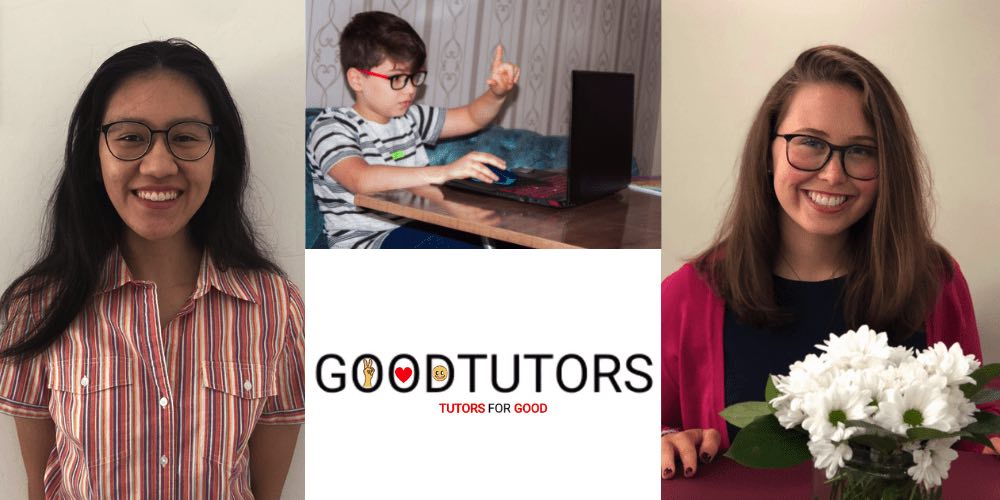
As a first-year student at LMU School of Education (SOE), Shauna Jimenez M.A. ’23 saw the chance to spend an hour per week tutoring an eighth-grade student named Alex as ideal preparation for her intended career as a school psychologist, even if the COVID-19 pandemic necessitated doing it over Zoom. But as the experience unfolded, it became something more.
Alex’s learning disability caused him to struggle with math. Using Zoom’s whiteboard feature, Jimenez patiently helped him with his homework each week. She got to know both Alex and his mother during these sessions. “Before starting with the math, we’d talk casually about things Alex was interested in,” Jimenez says. “I would let him share his screen to show me the action figures he liked to build, or to play a YouTube video he thought was funny.”
She ended up tutoring him for the entire academic year, not just the single semester she’d signed up for—and saw how much Alex benefited from their time together. “Early on, his mom had told me Alex was lonely and depressed, being stuck in his room all day during COVID,” Jimenez says. “By the end he didn’t need help with the math and was doing much better emotionally. His mom said he really looked forward to our sessions.”
Their experiences are not unique. In the past year, more than 180 LMU students participated in Good Tutors, a virtual service founded in March 2020 that pairs volunteers with preK-12 students from low-income families in the Los Angeles Unified School District. The SOE has been Good Tutors’ largest partner, providing training for volunteers and offering other resources that helped them assist their client families. Since its inception, Good Tutors has delivered free one-on-one tutoring to more than 500 students each week, providing much-needed support during a time of profound disconnection and loss.
The SOE first engaged in the volunteer effort last spring, when Good Tutors founder Tracy Grand reached out to Terese Aceves, professor and chair of SOE’s Department of Specialized Programs in Professional Psychology, to ask for the school’s assistance. Aceves set up the training program and brought in LMU’s Center for Service and Action (CSA) to coordinate the volunteer outreach effort.
Aceves, whose own scholarship has focused on supporting low-income and diverse families in special education, notes that Good Tutors came along at an ideal moment for LMU students who wanted to give back during a time when in-person volunteering was largely impossible. “It’s just an hour a week spending time online with a kid who really needs it,” she says. “The virtual setup allows LMU students to see the inequities for themselves: Through Zoom, they are let into the homes of families with different backgrounds and resources, and have a chance to make a difference for them.”
Consistent with LMU’s mission to educate the whole person, Good Tutors emphasizes meeting students’ socio-emotional needs as much as their academic ones, encouraging tutors to get to know both students and their families and to cultivate a love of learning rather than focusing narrowly on improving grades or SAT scores. “I tell the tutors that 90% of this is showing up and saying to a child that even though we’ve never met in person, I care enough about you to be here,” Grand says.
Because SOE trained volunteers who aren’t studying education, tutors came from all areas of the university. Freshman screenwriting major Maggi Quigg worked with three students, including two high school students whom she tutored in American Sign Language (ASL), which she’d learned in high school. One of her students, who is on the autism spectrum, struggled with verbal communication. “In time I learned that my assistance with ASL helped him with his social skills,” Quigg says. “He didn’t say a lot in the first session, and in the second one, I made it clear that we didn’t have to talk at all. When he didn’t feel that pressure, he started communicating more. By the end, we were having full conversations—his mom said this was a breakthrough.”
Some undergraduate volunteers at LMU have even expressed an interest in working into education after their experiences with Good Tutors. But, Aceves says, “whether you’re going to be an engineer, a lawyer, or a teacher, the skills you get from engaging with these families are invaluable.”
Chelsea Brown, CSA’s assistant director for student engagement, adds that participation in Good Tutors has added meaning and substance to the educational experience for LMU’s volunteers. “We always talk about being people who are with and for others,” Brown says. “For many, the pandemic has been a lonely time. When our volunteers share the knowledge they’re getting at LMU with kids who are struggling in school, the experience reinforces the idea that an LMU education isn’t just for the folks who go here. It serves a larger purpose.”



